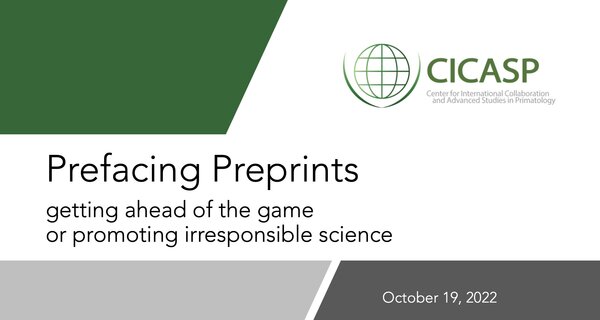Preprint Publishing

In the CICASP seminar on October 19, 2022, we explored the world of preprint publishing, and more broadly how it fits into the open science movement. Recently, more and more articles in biology are appearing as pre-prints, published without peer-review in online repositories like arXiv, BioRxiv, PsyArXiv, EcoEvoRxiv, etc. This provides an opportunity for authors of some study to prove precedence and avoid the typical delays associated with traditional peer-review publishing before their ideas can reach the broader community. Though, the majority of preprints do turn into peer-reviewed articles later.
At the same time, many argue that unverified science can appear and spread, even be picked up by the media before other scientists have had a chance to vet the study and verify its conclusions; which is the core feature of the typical peer-review process.
Following an introduction to the current publishing models that exist, we discussed the role of preprints, their pros and cons, and then heard from a current graduate student about his own experiences: from publishing a preprint in bioRxiv, through submitting it for peer-review in Peer Community In, to its eventual open access publication in PeerJ.